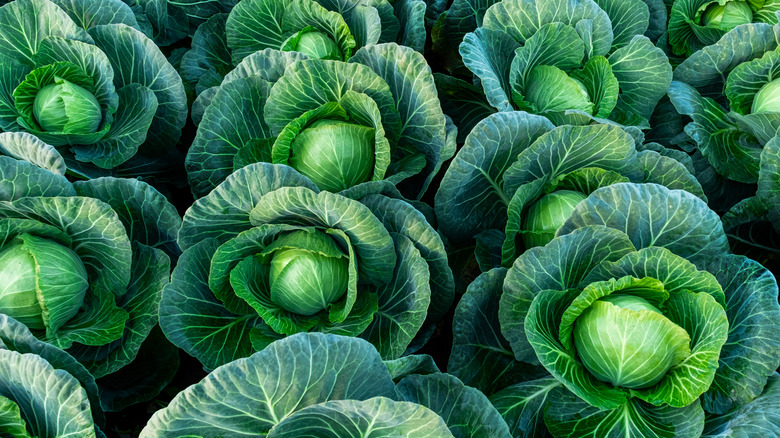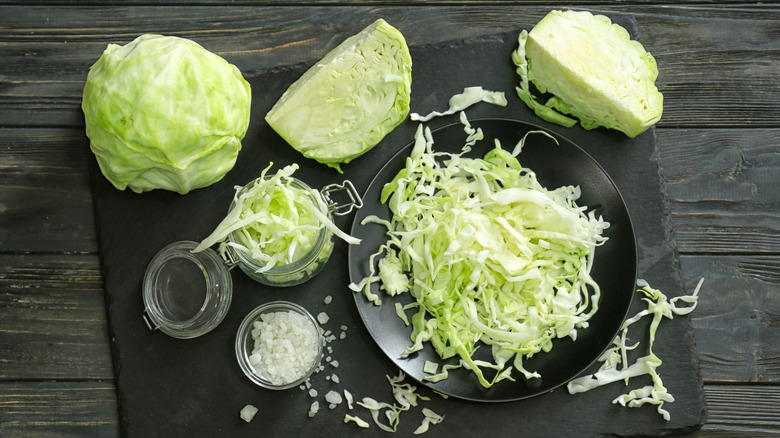The Reason Overcooked Cabbage Smells Bad
There are a few greens that people have a hard time with. Cabbage, which can be enjoyed raw or cooked, is one of them. The leafy vegetable is one of the oldest and healthiest greens recognized today, dating back to 4,000 B.C. according to The Farmers' Almanac. With the cabbages' vast health benefits — anti-inflammatory properties, vitamin C, and easing blood pressure and cholesterol — it's a wonder we don't eat this health-boosting plant more often (via Healthline).
Cabbage gets a bad wrap, but there are many recipes out there for cabbage soup, fried cabbage, cabbage salad, and more, but people shy away from them. The real reason cabbage is thwarted? Its smell. And unfortunately, the bad smell cabbage can give off isn't particular to certain people. Thanks to genetics, cilantro tastes like soap, cyanide smells of almonds, and broccoli is bitter, but when cabbage starts to smell, it stinks to high heaven, and no one is spared.
Cabbage contains sulfur compounds
Raw cabbage doesn't offend the nose, but if you've ever been trapped in the same room as overcooked cabbage, you will remember the smell forever. Recipe Tips warns us that when cooking cabbage, only heat it until it is tender, if your cabbage is overcooked it will look wilted and smell like rotten eggs. Why does this vegetable smell so bad after a few seconds too long in the pan?
According to LiveStrong, cabbage contains sulfur. If you've ever visited any sulfur springs, you know that the stuff has an unmistakable and pungent rotten smell. Cabbages grow their own sulfur compounds and enzymes, but while the plant is raw those compounds and enzymes are kept separated. During the cooking process, though, they are activated (via Pressdemocrat). The best way to avoid smelling up yourself and your kitchen when steaming cabbage for a long period of time is to add things such as bay leaves, and a tablespoon of white vinegar to the water to absorb the smell, says La Cucina Italiana. Otherwise, just do a quick sear in a hot pan to soften your cabbages and immediately remove them from the heat when tender.

